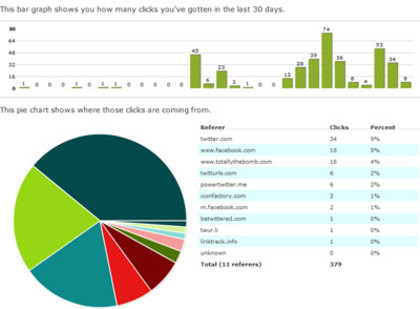How to make your online advertising more effective
How to make online and offline advertising more effective

A century ago the father of modern advertising John Wanamaker said "Half the money I spend on advertising is wasted; the trouble is I don't know which half." With the advent of the Internet it's now possible to track exactly which half is effective, and by using the following hints and tips you should be able to make the advertising you do online and offline much more effective.
Direct and brand advertising
There are two forms of advertising, direct and brand. Direct advertising focusses on getting results through a sale. Brand advertising does what it says on the tin, it's all about getting your brand known to the public, with the aim of making your brand the one the consumer thinks of, when they make a decision to buy a few months down the line.
Before the internet arrived both direct and brand advertising were notoriously hard to track. The problem was there's no natural mechanism that links an advert directly to the point of purchase. For example, unless you ask the customer where they saw your name it's almost impossible to say if that advert in the local paper resulted in a person buying something from you.
With the internet and mobile you get tracking by the truckload. With online advertising especially advertising with systems like Google AdWords, you get a wealth of information about the people who click on your adverts as standard, and that goes some way towards making your advertising more effective. However by adding a few simple techniques to your online and even your offline advertising you can also get information about what works and what doesn't, and you can do it very quickly and at little cost.
Create custom URLs
By creating specific URLs (web addresses) for each campaign that you are running, you get a much better idea of which 50% is working. You do this by simply adding a "?" followed by some code to the end of your website address.
For example:
20% off on Friday morning http://www.haircuts.com/offers.html?fridayad20off090512
Sign up to the TechRadar Pro newsletter to get all the top news, opinion, features and guidance your business needs to succeed!
Get your first cut for £8.00 http://www.haircuts.com/offers.html?8poundoffer090512
Three for two offer on selected hair products http://www.haircuts.com/offers.html?twoforthree090512
When you click on any of the above web links, it still takes you to the same page offers.html, but your website log files would record them as separate web addresses. So you when you analyse your website logs you can see whether the first, second, or third advert brought more users to the site.
Track your adverts
If downloading and analysing web logs sounds too complicated then there's an alternative. Tracking software uses the same principle, in that you generate a special web address for each campaign. However, instead of your prospects going directly to the page they're either diverted to the ad tracking software's homepage or via the installed ad tracking software which records the click.

You can then interrogate the tracking software (via your browser) any time you want, and it will give you full statistics instantly on that particular campaign.
Ad tracking services such as AdTrackz and AdMinder make a charge for their service or offer the first month for free, Linktrack offers a free limited service which can be upgraded to a full account if you like what you see.
Tracking offline advertising
Many businesses still advertise using offline, but just because your adverts are offline doesn't mean you can't get feedback and measure the advertising online.
Just as you did with the online advertising you can use specific web addresses on your offline advertising, however unlike online you want to keep things simple. So you have two options, you can use a short code generator such as is.gd (http://is.gd) to create a short easy to remember URL eg instead of using